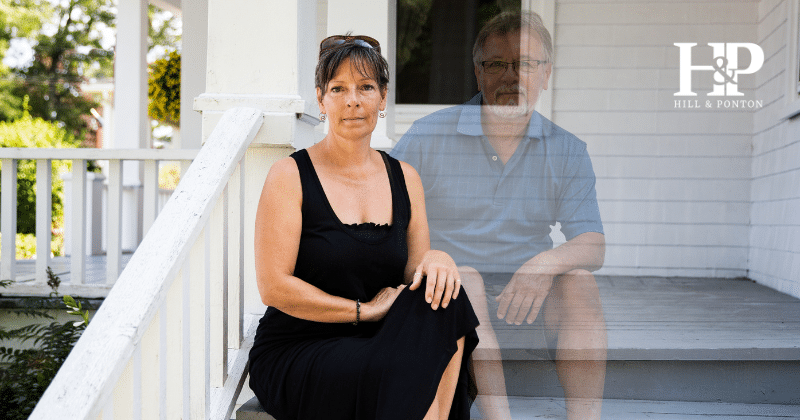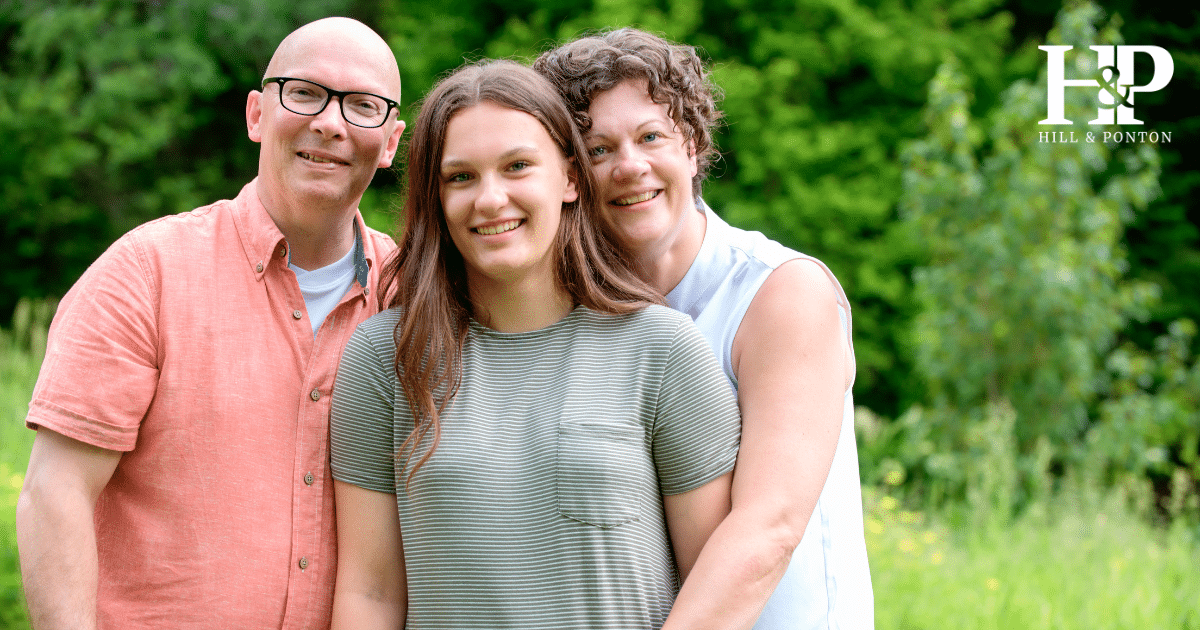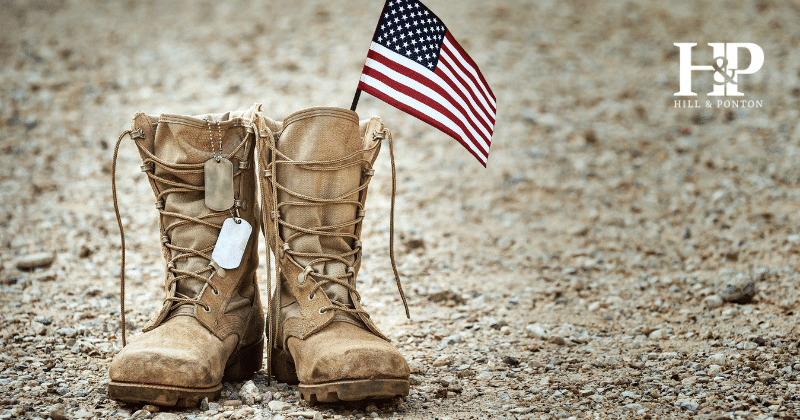Losing a husband or wife who served in the military is a difficult change. It’s not just about the loss of the loved one but also adapting to dealing with life’s challenges independently. The Department of Veterans Affairs provides survivor benefits to support widows and widowers of deceased veterans – especially those who were rated 100% disabled prior to death.
The VA Benefits a Widow(er) Is Entitled to Receive
VA disability compensation benefits awarded to a veteran do not continue directly to the widow or widower after the veteran’s death. However, eligible surviving spouses may qualify for accrued benefits from a pending claim (if the veteran dies before the decision), as well as a separate benefit known as Dependency and Indemnity Compensation (DIC), and other survivor benefits.
What Happens to VA Disability Benefits After a Veteran’s Death?
The VA allows widows and widowers to substitute the deceased spouse in a pending disability claim and win retroactive compensation on behalf of the veteran. You can also get monthly benefits if the veteran’s cause of death is service-connected. VA-accredited attorneys Allison Reddick and Rachel Cheek explain benefits for widows in this video:
If you were denied your rightful benefits, our legal team may be able to help you. Get a free evaluation of your case today.
Free case evaluationDIC Benefits for Surviving Spouses
The primary benefit available to surviving spouses is Dependency and Indemnity Compensation (DIC). This is a tax-free monetary benefit paid monthly to eligible surviving spouses, children, and parents of deceased veterans and service members.
DIC aims to provide vital financial support when a veteran’s death is connected to their military service. It is payable for life, unless the surviving spouse remarries before age 57 and remains married. Learn more about DIC benefits and effective dates.
Other VA Benefits for Spouses
- Aid and Attendance (A&A) and Housebound Benefits: These are additional payments on top of the base DIC benefit for spouses who require the aid and attendance of another person for personal functions required in everyday living or are substantially confined to their immediate premises because of a permanent disability.
- Educational Assistance (DEA – Chapter 35): Eligible spouses can receive educational benefits for degree and certificate programs, apprenticeships, and on-the-job training. Additionally, some schools might offer reduced tuition to DEA beneficiaries.
- Home Loan Guaranty: Surviving spouses may receive a VA guaranty for a mortgage loan, which helps secure better terms such as lower interest rates or the elimination of a down payment.
- Healthcare (CHAMPVA): If the surviving spouse does not qualify for TRICARE (the military’s health insurance program), they might be eligible for the Civilian Health and Medical Program of the Department of Veterans Affairs (CHAMPVA), which covers a portion of healthcare costs.
- Burial Benefits: Surviving spouses are entitled to burial benefits that include burial in a national cemetery, a government-furnished headstone or marker, a burial flag, and a Presidential Memorial Certificate. There may also be a burial and funeral expense allowance under certain conditions.
- Survivor’s Pension: For low-income surviving spouses of deceased veterans who served during wartime, there’s a survivor’s pension benefit. The amount is based on need and is designed to supplement the survivor’s income to reach a certain level set by law. This may also include Aid & Attendance or Housebound allowances for low-income widows or widowers.
- Commissary and Exchange Privileges: Eligible surviving spouses and dependents have access to military commissaries, exchanges, and morale, welfare, and recreation (MWR) retail facilities.
- State Benefits: Many states offer additional benefits to survivors of deceased veterans, including property tax reductions, educational benefits, and state veterans cemetery burial. Check your local VA offices for more information.
- Counseling and Support Services: Surviving spouses have access to bereavement counseling through the VA to help with the emotional and psychological stress of losing a loved one.
DIC Requirements for a Surviving Spouse
Marriage Requirements
- Legally Married to a Service Member: If your partner served in the military and you were married, you’re on the right track. The VA looks at marriages to make sure they were legal and recognized.
- When Did You Marry? If you tied the knot before your spouse left the service OR you were married for at least a year (regardless of the date of the marriage), you meet the VA’s requirements for this.
- What about Remarriage? If you remarried after your spouse passed away, this is where the rules get tricky. If you remarried after turning 57, you’re eligible. If you remarried before 57, DIC benefits stop but can resume if the remarriage ends in divorce, annulment, or death.
- Living Together: Living with your spouse until they passed away is another key thing to consider. Separation will disqualify you – but if you were separated through no fault of your own, you could still get DIC benefits. The VA will examine marital history and intent.
Veteran’s Requirements
To be eligible for DIC, you must be a surviving spouse (as defined above) and your veteran’s death must fall into one of these categories:
- Death on Active Duty: If your veteran died while on active duty, active duty for training, or inactive duty training.
- Death Due to a Service-Connected Disability: If your veteran died as a result of a service-connected injury or illness. This applies even if the death occurred many years after their military service.
- 100 Percent Disabled Veterans: After the death of a 100% disabled veteran, the spouse can get DIC even if the veteran’s death was not directly caused by a service-connected condition, when the veteran was rated 100% disabled for at least 10 continuous years prior to death (for shorter durations, see below). TDIU also counts as 100% disability, as long as it was considered total and based only on service-connected conditions. These DIC benefits are sometimes referred to as “presumed service-connected death benefits.”
100% Disabled Veteran Benefits for the Spouse After Death
If your veteran was rated 100% permanently and totally disabled by the VA at the time of their death, even if the direct cause of death was not service-connected, you may still qualify for DIC.
This applies when the veteran was rated totally disabled (either schedular 100% or via Total Disability based on Individual Unemployability) due to service-connected conditions for one of the following periods:
- For at least 10 continuous years immediately before death,
- Since separation from military service and for at least 5 years immediately before death, or
- For at least 1 year prior to death, if the veteran was a former prisoner of war (POW)
Applying for DIC as the Widow(er) of a Veteran
Step 1: Gather Your Documents
- Your spouse’s DD214 or other military discharge papers. This shows their service history and status.
- Death certificate: To prove the loss of your spouse.
- Marriage certificate: To confirm your marriage to the service member.
- Any relevant medical records: especially if the death was service-connected.
Step 2: Fill Out the Form
The form you’ll be using for DIC benefits is VA Form 21P-534EZ, found here. Fill it out with everything it asks for – take your time and be thorough!
Step 3: Submit Your Application
- Online: Upload your completed form and documents through the VA website.
- Mail: Send everything to the VA’s claims intake center. The address is on the form.
- In-Person: Visit a local VA office if you prefer to hand in your documents face-to-face.
Step 4: Wait for a Response
After you submit your application, there will be a waiting period where the VA will review your application. This can take time, so patience is key. You can check the status of your application online or by calling the VA.
Know Your Rights and Options
Consider seeking assistance from a VA-accredited representative or a veterans’ service organization to guide you through the process. If your application is denied, you have the right to appeal the decision – and Hill & Ponton’s VA lawyers may be able to fight on your behalf to win everything you’re entitled to receive.
Maximize Your Benefits
It’s important you understand the full range of benefits available to you, to ensure you are getting the support you deserve. Here’s a few tips about how to maximize your benefits:
Check for Additional Allowances
Depending on your circumstances, you might be eligible for additional payments on top of the basic DIC benefit, including:
- Aid & Attendance (A&A): If you need help with daily activities or are housebound, look into A&A benefits.
- Dependent Children: If you have children under 18, you could receive additional payments for them.
Stay Informed About Rate Changes
DIC rates usually change year-to-year because of annual cost-of-living adjustments (COLA). Subscribe to our newsletter to receive updates on disability rates and other changes that might impact your benefits.
Update Your Information
Your life changes, so when it does, it’s important to let the VA know. Whether it’s a new address, a change in marital status or adding a child to your benefits, keeping the VA informed ensures your benefits reflect your current situation.
Explore Educational Benefits
As a surviving spouse, you may also be entitled to educational benefits, like the Survivors’ and Dependents’ Educational Assistance (DEA) program or the Fry Scholarship, to help cover costs for tuition, books, housing and other expenses, if you’re wanting to further your education.
If you were denied the benefits you deserve, contact Hill & Ponton for a free evaluation of your claim. We win 96% of the cases we take on and we’d be honored to assist you.




